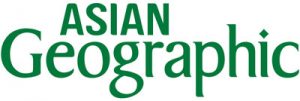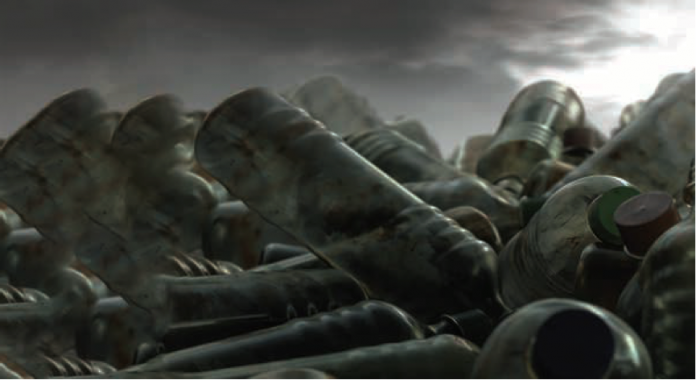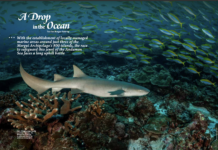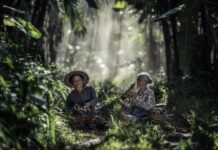Text Rachel Kwek
It is no secret that only 9% of our global plastic waste is recycled. The rest end up in incinerators, landfills and our oceans. Knowing the identity of the plastic you use is key in making sure that more of what is used is successfully recycled.
While the RIC labelling system seeks to promote recycling by facilitating the separation of different types of plastic, the effectiveness of it is unclear. Awareness of the importance of knowing and categorising our plastic waste — as well as how to recycle — is still low amongst many Asians.
I cringe each time I see people throw plastic straws, bags or food containers into the bin. Do we realise that our mindless consumption and insouciant disposal habits have already created massive environmental problems beyond our ability to cope? 91% of all the plastic waste we create is not recycled. China is the biggest importer of the world’s plastic waste, importing 45 percent of all plastic waste (106 million metric tons) since 1992. In 2016 alone, half of all plastic waste meant for recycling was exported by 123 countries, and China imported two thirds of it (10,225 million metric tons) from 43 of them.
It is hard not to question whether the plastic waste we make the effort to process and place in recycling bins really gets recycled. Much uncertainty over what we would do with our plastic waste has arisen with China’s decision to stop importing plastic waste since 2016 — which could displace as much as 111 million metric tons of plastic waste by 2030, according to a study published in Science Advances.
Nowhere is the need for action greater than in Asia, where chronic problems of overconsumption and inadequate waste management are severe. And we need to act now.
Various Types of Plastics
(click the + to expand)

Type of Plastic
Polyethylene Terephthalate (PET)aka polyester
Common Forms
Beverage bottles, clothes, carpets, food jars,
mouthwash bottles
Ease of Recycling
Easy
Amount produced in 2015 (million of tonnes)
33

Type of Plastic
High-density Polyethylene (HDPE)
Common Forms
Toys, plant pots, garden furniture, rubbish bins, detergent bottles, buckets, milk jugs
Ease of Recycling
Easy
Amount produced in 2015 (million of tonnes)
52

Type of Plastic
Polyvinyl Chloride (PVC)
Common Forms
Synthetic leather, credit cards, medical equipment, shampoo bottles, window and door frames, pipes, gutters, fittings, cable sheathing
Ease of Recycling
Manageable
Amount produced in 2015 (million of tonnes)
38

Type of Plastic
Low-density polyethylene (LDPE)
Common Forms
Shopping bags, trash bags, packaging films and bags, bubble wrap, fabric for clothes, furniture, and carpets, wire and cable insulation, squeezable bottles
Ease of Recycling
Manageable
Amount produced in 2015 (million of tonnes)
64

Type of Plastic: Polypropylene (PP)
Common Forms
Reheatable food containers, bottle caps, straws, medicine bottles, insulated cooler bags, fabric, tarps, diapers
Ease of Recycling
Difficult
Amount produced in 2015 (million of tonnes)
68

Type of Plastic
Polystyrene (PS) aka styrofoam
Common Forms
Takeaway/ disposable food containers, toys, insulation, packaging material, boards
Ease of Recycling
Very Difficult
Amount produced in 2015 (million of tonnes)
25

Type of Plastic
Others – all other plastics that do not fall into the above categories including synthetic resins and composite plastics (polycarbonate, polyctide, acrylic, acrylonitrilebutadiene, styrene, fiberglass, and nylon)
Common Forms
Nylon fabrics, signboards, medical storage containers, compact discs, baby bottles, car parts
Ease of Recycling
Very Difficult
Amount produced in 2015 (million of tonnes)
127
For the rest of this article (Asian Geographic No.134 Issue 1 /2019 ) and other stories, check out our past issues here or download a digital copy here
The 25th anniversary of the largest and longest running dive show, Asia Dive Expo (ADEX) is set to occur on the 11-14th April 2019. Centred on the theme – Plastic free Future, ADEX is more than just a dive show with its commitment to the environment. Among an exciting lineup of programs, attendees can look forward to a Future Forward Series of Panel Discussion on the Single-Use Plastic Conundrum in Asia, on 13th April.
So join us at the event, get inspired and for all you know, you might just liberate the inner diver in you! More details of the event here.











